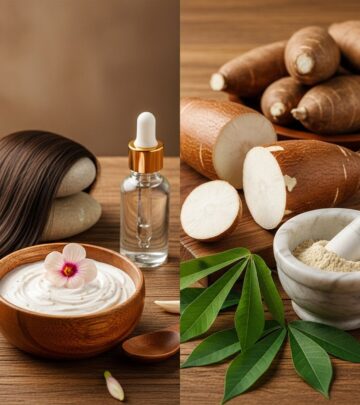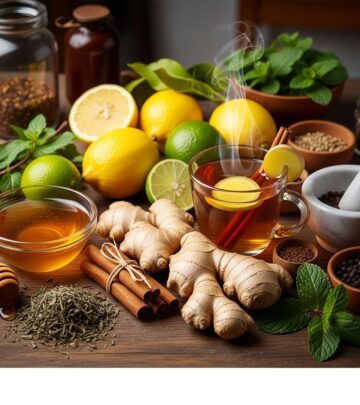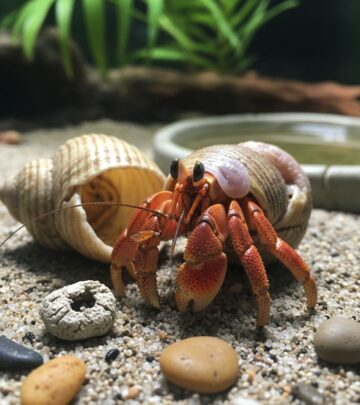Natural Remedies for Postpartum Depression and Anxiety
Explore holistic, herbal, lifestyle, and nutritional approaches for managing postpartum depression and anxiety, promoting mother and baby wellbeing.

Natural Remedies for Postpartum Depression & Anxiety
Welcoming a new baby is often described as a time of happiness, yet many new mothers experience more complicated feelings such as sadness, anxiety, and fatigue. Postpartum depression (PPD) and postpartum anxiety are common and can profoundly affect a mother’s emotional and physical health as well as her bonding with her child. While conventional medical treatments are effective for many, growing numbers of mothers seek natural and holistic remedies due to concerns about medication use, side effects, and preferences for a gentler approach. This article explores comprehensive natural strategies for managing postpartum depression and anxiety, focusing on their causes, symptoms, herbal and nutritional remedies, lifestyle adjustments, and supportive measures.
Understanding Postpartum Depression and Anxiety
Postpartum depression is a significant mood disorder that can occur after childbirth. Unlike the milder and short-lived ‘baby blues,’ which affects up to 80% of new mothers, PPD can persist and include more severe symptoms such as:
- Persistent sadness, hopelessness, or excessive crying
- Lack of interest in the baby or in activities previously enjoyed
- Difficulty sleeping (or sleeping too much) and chronic fatigue
- Anxiety, panic attacks, and intense mood swings
- Guilt, feelings of inadequacy, and trouble concentrating
Postpartum anxiety often accompanies or overlaps with depression, featuring symptoms such as:
- Constant worry about the baby’s health or future
- Racing thoughts
- Restlessness and irritability
- Physical symptoms like heart palpitations
These conditions can affect up to 15% of mothers and often go undiagnosed or unspoken. Early recognition and intervention are vital for recovery, both for mother and infant wellbeing.
Herbal and Nutritional Approaches
Natural remedies can offer additional support to mothers coping with postpartum depression and anxiety, especially when symptoms are mild to moderate. Always consult with a qualified healthcare provider before adding herbal medicines or supplements, particularly when breastfeeding.
Key Herbs for Postnatal Emotional Health
- Passionflower (Passiflora incarnata)
- Recognized for its calming effects and ability to ease anxiety without causing drowsiness.
- Often helps mothers who have difficulty falling or staying asleep due to anxiety.
- Evidence shows Passionflower can be as effective as some anxiolytic medications for short-term relief of anxiety symptoms.
- Ashwagandha (Withania somnifera)
- An adaptogenic herb, supporting the body’s stress response and hormone balance.
- Helps reduce anxiety and depressive symptoms while supporting healthy energy levels.
- Beneficial for mothers with both anxiety and signs of adrenal fatigue.
- Skullcap (Scutellaria lateriflora)
- A traditional herbal nervine, often used to promote relaxation, manage worry, and support restorative sleep.
- Especially helpful for nervous tension and insomnia linked to repetitive, anxious thoughts.
- Safe for short-term use during breastfeeding but consult an expert for long-term application.
- Eleuthero (Eleutherococcus senticosus)
- An adaptogen well-regarded for strengthening resilience after chronic stress.
- Can gently boost energy and support mood adaptation to new motherhood challenges.
- Some people may find it mildly stimulating—observe personal response carefully.
Other supportive herbs sometimes considered (with professional guidance):
- Lemon Balm (Melissa officinalis): Gently calming, useful for anxiety and trouble sleeping.
- St. John’s Wort (Hypericum perforatum): Mixed safety evidence in breastfeeding and interacts with many medications—use only under medical supervision.
Nutritional Support and Supplements
- Omega-3 Fatty Acids
- Key for brain function and mood regulation, especially EPA and DHA.
- Natural sources: Oily fish (salmon), walnuts, flaxseeds, chia seeds, eggs.
- May help prevent or improve postpartum depressive symptoms; some evidence supports supplementation, particularly for women with low baseline intake.
- Iron and B Vitamins
- Addressing deficiencies in iron or B-vitamins (notably B6, B12, and folate) can improve energy and mental resilience.
- Consider gentle supplementation if postpartum blood loss or fatigue are present, but consult with a provider.
- Vitamin D
- Low vitamin D levels have been linked with higher risk of mood disorders, including postpartum depression.
- Sunlight exposure and, if necessary, supplementation are helpful for at-risk mothers.
Lifestyle and Holistic Strategies
In addition to herbal and nutritional support, several natural lifestyle approaches offer tangible benefits. These can be used alone or combined with other therapies.
Exercise and Movement
- Physical activity increases endorphin levels, naturally boosting mood and fighting stress.
- Gentle activities such as walking, postnatal yoga, and swimming are accessible and have additional physical health benefits.
- Regular exercise also supports better sleep patterns and increases energy.
Sleep and Rest
- Prioritizing restful sleep and allowing oneself to nap whenever possible are crucial.
- Ask for help overnight or during the day from friends, family, or a postpartum doula.
- Simplify household responsibilities; focus only on essential tasks to minimize overwhelm.
Nutrition and Hydration
- Eat regular, balanced meals with a focus on fresh produce, whole grains, quality protein, and healthy fats.
- Stay hydrated—dehydration can worsen fatigue and mood instability.
- Avoid excessive caffeine and processed sugar; opt for herbal teas, fruit, and water instead.
Connection and Support Systems
- Engage with supportive people—partners, friends, family, online and local mother’s groups.
- Seek counseling or therapy when possible; many areas offer providers specializing in perinatal mental health.
- Do not hesitate to ask for help with childcare, household responsibilities, or emotional needs.
Natural Therapies
- Acupuncture: Some studies support acupuncture for reducing stress and depressive symptoms; it can be safely used postpartum.
- Aromatherapy: Essential oils such as lavender or chamomile can be relaxing; use only high-quality oils and avoid direct ingestion or use around newborns’ faces.
- Mindfulness and Meditation: Practices that include deep breathing, guided meditation, and gentle mindfulness can break the cycle of anxious thought patterns and provide space to rest and reset.
Key Comparison Table: Herbal Remedies for Postpartum Symptoms
| Herb | Main Benefit | Common Form | Special Cautions |
|---|---|---|---|
| Passionflower | Reduces anxiety, calms mind | Tea, tincture, capsules | Use short-term, consult for breastfeeding |
| Ashwagandha | Reduces stress, supports energy | Capsules, powder, tincture | Consult professional for breastfeeding use |
| Skullcap | Promotes relaxation, aids sleep | Tea, tincture | Generally safe, use with qualified advice |
| Eleuthero | Stress adaptation, mild energy boost | Capsules, tincture | Can be stimulating; monitor response |
When to Seek Professional Help
While natural remedies can provide valuable support, there are times when professional medical intervention is essential. Contact your healthcare provider promptly if you experience:
- Persistent sadness or inability to function daily
- Thoughts of harming yourself or your baby
- Severe anxiety, panic attacks, or psychosis
- No improvement with holistic approaches after several weeks
A combination of natural methods, professional counseling, and sometimes medication may be required. There is no shame in seeking help, and rapid intervention leads to the best outcomes for mothers and their families.
Further Tips for Postpartum Emotional Wellbeing
- Allow time for recovery: Healing after childbirth is both physical and emotional. Set realistic expectations and give yourself grace.
- Avoid isolation: Regular social contact, even brief, can lift mood and ease feelings of loneliness.
- Accept support: Let others help with practical tasks. Don’t be afraid to delegate or decline non-essential obligations.
- Practice self-compassion: Remember that mood fluctuations are common, and seeking help is a strength, not a weakness.
Frequently Asked Questions (FAQs)
What are the main symptoms of postpartum depression and anxiety?
Persistent sadness, loss of interest in activities, difficulty bonding with baby, anxiety, excessive worry, irritability, sleep issues, fatigue, difficulty concentrating, feelings of hopelessness, or thoughts of self-harm.
Are natural remedies safe while breastfeeding?
Many herbal and nutritional remedies are considered low risk, but always consult a physician or qualified herbalist before starting, as some herbs and supplements may impact milk supply or transfer in breast milk.
How long does postpartum depression usually last?
Duration varies for each individual. Some recover within weeks, others may take several months or longer. Early treatment and holistic support often speed up recovery.
Is exercise really effective for postpartum mood?
Yes, regular gentle activity can significantly improve mood, decrease anxiety, and improve sleep by boosting endorphin and serotonin levels.
When is it important to seek medical help?
Seek help urgently if you experience persistent sadness, thoughts of suicide, thoughts of harming your baby, hallucinations, or are unable to care for yourself or your child.
Summary: Nature and Nurture for Postpartum Wellness
Postpartum depression and anxiety are deeply personal yet common challenges for many mothers. Blending natural solutions—including select herbal remedies, nutritional interventions, lifestyle changes, and holistic therapies—can offer meaningful relief and support. However, these methods are best used with professional guidance, especially in severe cases or when breastfeeding. Whatever path you choose, prioritizing self-care, building supportive connections, and responding to mental health needs with compassion empower the healing process for both mother and family.
Read full bio of Sneha Tete











